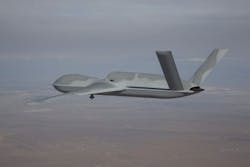XCOR to receive share of $10 million in NASA suborbital flight contracts
XCOR's Lynx suborbital reusable launch vehicle is capable of up to four flights per day using advanced rapid call-up and turnaround operations. The Lynx will provide three to four minutes of microgravity and, if desired, exposure to the harsh environment of space, providing opportunities to investigate the unexplored regions of the upper atmosphere.
"We're building our Lynx suborbital vehicle to accommodate as many of these missions as possible," explains XCOR's COO Andrew Nelson. "By integrating multiple payload spaces both inside the pressurized cabin and exposed to the vacuum of space we can handle a large variety of experiments as well as the researchers themselves.
“This is currently a very underserved market, with long lead times and no guarantee of payload recovery on conventional sounding rockets,” Nelson adds. “NASA is jump-starting a revolution in the commercial space industry and scientific research by pairing up payload investigators with cutting edge private suborbital vehicle providers such as XCOR."
PSI recently announced its Atsa Suborbital Observatory, a versatile facility maintaining cameras and telescopes to conduct astronomical observations or remote sensing of the Earth, will fly on Lynx. SwRI, a national research institute, will be the first Lynx launch customer for broad based suborbital payload integration and research.
NanoRacks and Space Flight Services perform orbital payload integration and science experimentation; NanoRacks are providing research platforms on the International Space Station. SpaceFlight Services provides standalone on-orbit research and transport of experiments to the ISS in the SpaceX Dragon capsule.
"Through this award, NASA has recognized XCOR's Lynx suborbital vehicle as a useful payload platform that will benefit both NASA's R&D needs and the private research, scientific, and educational communities," says Jeff Greason, XCOR CEO. "By encouraging and incentivizing frequent, low-cost access to space, NASA is helping to ensure America's future as a leader in space."
NASA's Office of the Chief Technologist at NASA Headquarters in Washington, D.C., oversees the Flight Opportunities Program.
